The new minister must commit himself to supporting long-term defence plans or else defence modernisation will continue to lag and the growing military capabilities gap with China will assume ominous proportions, warns Brigadier Gurmeet Kanwal (retd).
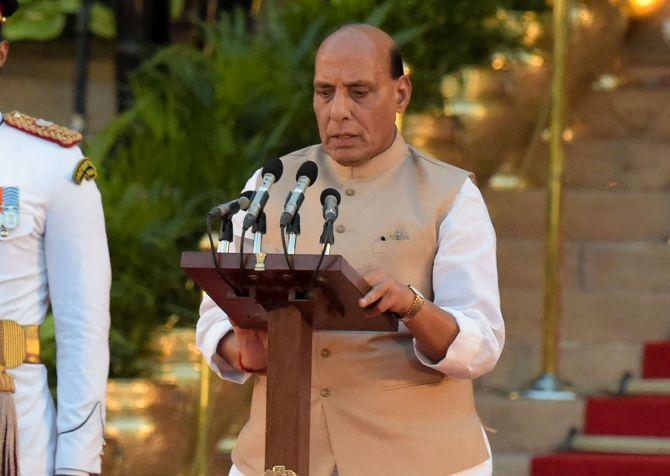
Rajnath Singh has taken over the reins of the defence ministry at a difficult time in India's history.
The election manifestos of the BJP and the Congress mentioned national security challenges in passing, but neglected to touch upon their plans for revitalising the core issue of decision making at the apex level and measures to enhance defence preparedness to manage future threats and challenges.
These issues cannot be ignored by the new minister.
The manifesto did not point out there is an urgent requirement to formulate a comprehensive National Security Strategy, including internal security. The NSS should be formulated after carrying out an inter-departmental, inter-agency, multi-disciplinary strategic defence review.
At present, the procurement of weapons and defence equipment is being undertaken through ad hoc annual procurement plans, rather than being based on duly prioritised long-term integrated plans that are designed to systematically enhance India's combat potential.
The new minister must commit himself to supporting long-term defence plans or else defence modernisation will continue to lag and the growing military capabilities gap with China's People's Liberation Army will assume ominous proportions.
This can be done only by reviving the dormant National Security Council as defence planning is in the NSC's domain. The Cabinet Committee on Security deals with current and near-term threats and challenges and reacts to emergent situations.
Today, the concept of national security encompasses many more facets of security and is much more wide ranging than merely the defence of territory.
While there is a defence minister of Cabinet rank, all other aspects of national security are the responsibility of the national security adviser. However, the NSA is only an advisor to the prime minister and has no executive authority. He is also not answerable to Parliament.
It is necessary to upgrade the post of NSA. The NSA should be the chief coordinator between the three key ministries responsible for national security: The defence ministry, the ministry for external affairs and the home ministry.
He should be given executive control over the external and internal intelligence agencies.
He should also be nominated as India's cyber czar and given the responsibility to coordinate cyber security as well as offensive cyber operations.
The government must also immediately appoint a Chief of Defence Staff or a permanent Chairman of the Chiefs of Staff Committee to provide single-point advice to the CCS on military matters.
Any further dithering on this key structural reform in higher defence management on the grounds of the lack of political consensus and the inability of the armed forces to agree on the issue will be extremely detrimental to India's interests in the light of the dangerous developments taking place in India's neighbourhood.
The logical next step would be to constitute tri-Service integrated theatre commands to synergise the capabilities of individual services. International experience shows that such reform has to be imposed form the top down and can never work if the government keeps waiting for it to come about from the bottom up.
While internal security challenges are gradually gaining prominence, preparations for conventional conflict must not be neglected. Major defence procurement decisions must be made quickly.
Large-scale ammunition shortages have been pointed out in several Comptroller and Auditor General reports in 2015-2017. These must be made up quickly. Many tanks and infantry combat vehicles are still 'night blind' -- they lack suitable night vision equipment.
The army is still without towed and self-propelled 155mm howitzers for the plains and urgently needs new utility helicopters, anti-tank guided missiles. It also needs to acquire weapons and equipment for counter-insurgency operations.
The navy waited for long for the Vikramaditya aircraft carrier, which was being refurbished in a Russian shipyard at exorbitant cost. Construction of the indigenous air defence ship and Scorpene submarines is behind schedule.
The plans of the air force to acquire 126 multi-mission, medium-range combat aircraft in order to maintain its edge over the regional air forces is stuck in the procurement quagmire except that a contract has been signed for the acquisition of 36 Rafale fighter aircraft.
The LCA project continues to lag way behind schedule. Meanwhile, the MiG-21 and MiG-27 fleets have become obsolescent. The IAF needs more AWACS aircraft and air-to-air refuellers, besides additional transport aircraft. All three services need a large number of light and medium lift helicopters.
India's nuclear forces require the early operational deployment of Agni-4 and Agni-5 missiles and nuclear-powered submarines with suitable ballistic missiles to acquire genuine deterrent capability against China.
The armed forces do not have a truly integrated C4I2SR system for network-centric warfare, which will allow them to optimise their individual capabilities and enable the conduct of 'effects-based' operations.
Force multipliers like combat drones are yet to be introduced into service. The central armed police forces also need to be modernised as they are facing increasingly greater threats while continuing to be equipped with sub-standard weapons; they will need the defence ministry's support.
All of these high-priority acquisitions will require extensive budgetary support.
With the defence budget languishing at less than 1.5% of India's GDP at present -- compared with China's 3% and Pakistan's 4.5% -- it will not be possible for the armed forces to undertake any meaningful modernisation or make up equipment and ammunition deficiencies.
The funds available on the capital account at present are inadequate to suffice even for the replacement of obsolete weapons systems and obsolescent equipment that are still in service well beyond their useful life cycles.
The defence budget must be substantially enhanced to enable the armed forces to meet future threats and challenges, as also to discharge India's obligations and fulfil the country's responsibilities towards making a positive contribution to peace and stability in the Indo-Pacific region. Only then will the environment be conducive to rapid socio-economic development.
Brigadier Gurmeet Kanwal (retd) is former Director, Centre for Land Warfare Studies (CLAWS), New Delhi.

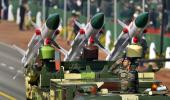
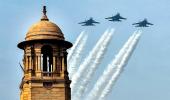





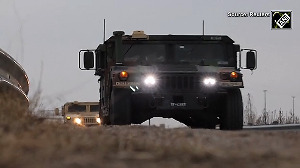
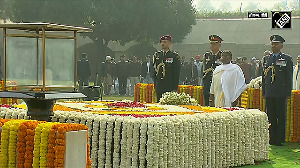
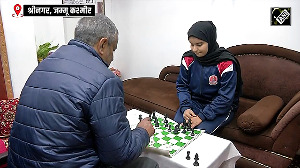
 © 2025
© 2025